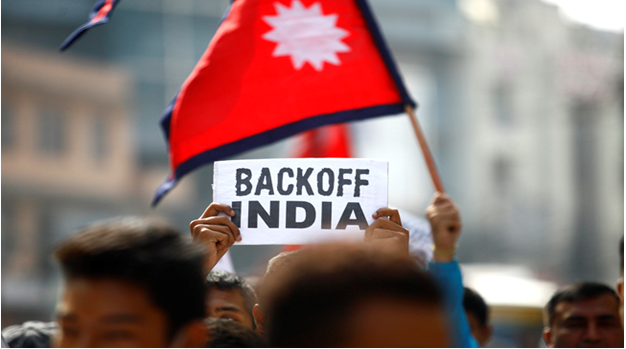The 'Other' Elites: A Socio-Political Perspective Of Elitism In South Asia

Elites are everywhere, and, they’re always perceived to be someone else. The idea of elitism has long withstood the fragile cradles of human civilization, and it is nothing but the belief that an individual or a particular group have a higher authority due to their quality and the expectation that they lead. Elitism is also a “situation in which power is concentrated in the hands of a limited number of people, and when an individual assumes special 'privileges' and responsibilities in the hope that this arrangement will benefit humanity or themselves”.
South Asia, in particular, has suffered from elitism for the last few centuries. India had to tolerate the untoward rule of the East India Company for 200 years and Nepal was ruled by successive monarchs, autocrats, and politicians who have failed the common people bitterly. In both nations, the elites have been someone else. For India prior to Independence in 1947, it was the British, and for Nepal, it was the kings and the Rana regime. Currently, the common Indians say that the cricketers, politicians, bureaucrats, bankers, businessmen and blue collared professionals are the elites of the nation. But even the prime minister might have a different thought regarding it. There’s no doubt that the U.S. is a declining superpower but still holds a major control worldwide. For few analysts, India is still under the hegemony of the U.S. as an ally and a trading partner. Whereas others perceive India’s inclination towards the American hegemony due to the sour relationship with China. In Nepal, the absolute elite, for now, is India as China is slowly making its way inward.
But why do state actors feel that their power is constrained even when they reach the topmost position of the nation? Because usually, they know that there’s another state person who’s more powerful than them. Or at least they would feel challenged to squash them. I can only assume that there’s a vast network of elites in the form of associations, groups, and cartels. This is one of the gifts of globalization whether we like it or not. And the ones who are suffering due to it are the common people.
Nepali elites have harmed the powerless, hapless people too. They are often known as politicians, kings, autocrats, and false freedom fighters. At present, the people of the lynched nation suffer from a 9-month rotating government and has proved to be no better than the ailments faced during the interregnums. Most people have a clear idea that the leaders have failed diplomatically in relation to India as the latter nation has time and again interfered to micromanage the politics and stunted the developmental works. But it would be wrong to solely blame India as Nepali leaders are no good and have subjected themselves to the southern elitism. Where does India stand in this matter?
India cannot be blamed for its hegemonic foreign policies. Nor can Indians be hated for the bureaucratic elitism mentality towards its neighbors. The fact that India was under the British rule for 200 years and the post de-colonization has only ripened to 70 years tells us a few things about its elite behavior to the smaller neighbors.
Elitism feeds a false notion to leaders that they ought to divide and rule, or just rule by hook or crook. This is evident in India’s policies towards Sri Lankans, North East Indians, and the Kashmiri people. The negative side-effects that elitism produces are discrimination, meritocracy, technocracy, and plutocracy. Hence, the ever-growing divide between rich and poor, and, the policies that the elites impose are regressive, divisive, and controlling. Even the common Indians perceive that the elites who rule the largest democracy in the world are highly visible. This elitism is widespread in all areas of the nation—from sports to religion and wealth distribution too. Caste system makes it worst for most Nepalis and Indians as they continue to escape the dreadful clutches of elitism—while pointing out that their misfortune is the result of the elites. And the elites continue to wonder when they will be free from the other elites.
As mentioned in an article in the New Statesman, elites are the ones who collude anti-power movements and at the same time work to preserve their status quo. As much it might sound mind-boggling, the depth and network of elites have spread everywhere, and they’re not us. They cannot be us as our elitism is limited and non-existential so it has to be someone else. Perhaps the species in the new-found planet Proxima Centauri, if they do exist, can teach us about learning to be humble and treat our fellow beings with kindness and love. Or else, perhaps, one day the other elites from another planet overcome the present ones who are blind to the temporary powers they’ve accumulated, because, in this century the elites continue to indulge in power and the common people are struggling, complaining and mourning about it.



